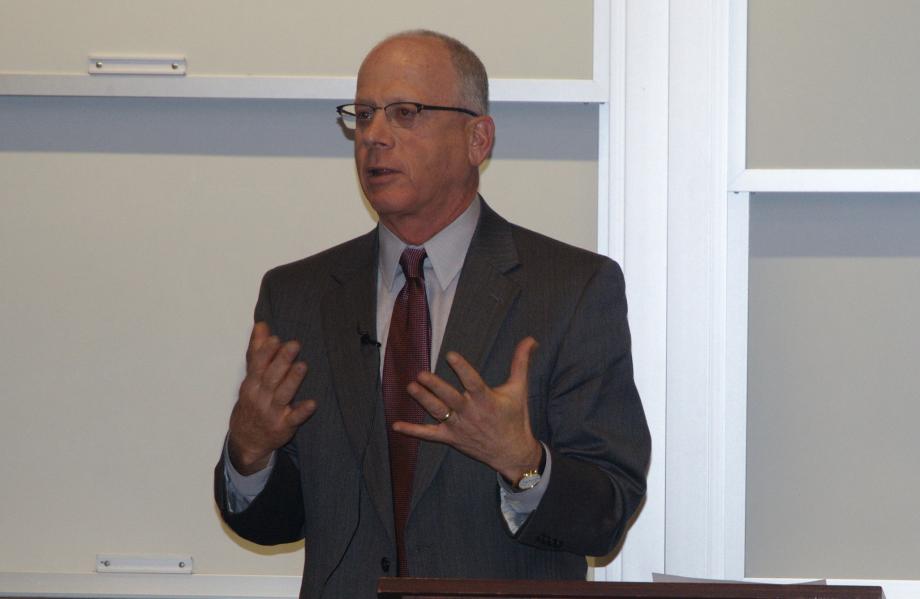Concentration or Distribution? Levmore CBI Examines How the Law Solves Problems

Imagine a community with a dirty river. How should the law work to clean it up? By opting for a teamwork approach, distributing liability among many polluters and hoping everybody behaves better — or by concentrating liability with a single party well-suited to solving the problem?
In an energetic kickoff to the 2014-15 season of the popular lecture series Chicago’s Best Ideas, Professor Saul Levmore discussed how the law works to solve problems, either by concentrating or distributing responsibility; how the information age has forced it to veer increasingly toward the concentration strategy; and why this inevitable shift may not be good for society.
“Each strategy is morally appealing, which is why I think they survive,” said Levmore, the William B. Graham Distinguished Service Professor of Law, noting that the average person would probably sympathize with the idea of picking one big player as well as the idea of sharing responsibility.
But technology has changed the game, he said, by essentially forcing society to concentrate responsibility for large-scale problems with the government because it is equipped to gather, process, and act on information in a way the market is not.
Climate change, he said, is a good example.
“No one thinks the right solution to climate change is: do nothing, but remind people of the tort system,” Levmore said, drawing a laugh. “Or remind people that if the sea continues to rise, and if the East Coast is annihilated, we’ll then go to all the people who didn’t recycle and make them pay their share of the problem. I don’t think so.”
Instead, the issue is too enormous for distribution to work efficiently. A concentrated problem solver is better equipped to tackle the inevitable questions, such as: Should we build a sea wall, and if so, where? Should we switch to solar power and, if so, what’s the right rate of innovation given that most solar panels are not yet efficient enough to support a wholesale shift?
As a result, “we say to the central government, ‘Look, we don’t really trust you. We kind of hate a lot of things you do. We give you small things to do, and you don’t do them very well, and then when it’s too late, you keep funding them anyway. But we don’t have a choice but to go to you,’” he said. “‘So even though you haven’t shown us that you can even deliver mail, we would like you now to be in charge of climate change.’ ”
Concentration might be necessary, he said, but it isn’t necessarily good.
“Now you have things like $100 billion sea walls, and now we’ll worry, ‘Do you really think they put the sea wall in the right place? Or did they put it there because it was that donor’s cousin who owned the sea wall?”
The lecture drew a full house, and many of the students who attended said they relished the opportunity to look at the law in a new way. One asked if growing information would eventually overload the government and force a shift toward distribution. But Levmore, while noting that he wasn’t celebrating the growth in central government, said he thought that would simply result in the little players being overloaded, too.
Rachel Zemke, ’16, attended because she enjoys hearing Levmore speak.
“The way he conceives the world is always different, and it’s really valuable to think about it,” she said. “I appreciated the descriptive value he provided about why things work the way they do.”
Added Grace Goodblatt, ’16: “Professor Levmore can captivate an audience no matter the subject. It was great getting to hear him lecture again, and it was a nice refresher of the concept of ‘sprinkling’ and concentrating liability from 1L torts.”